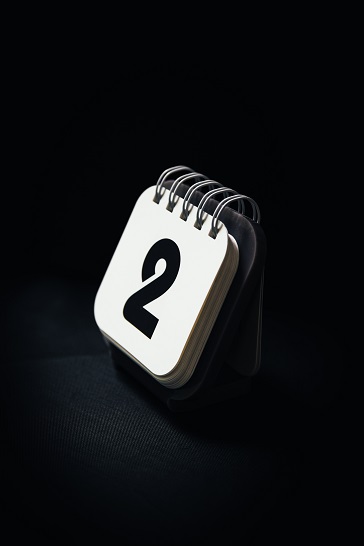
You’ve now got till 5pm on Tuesday, 2 August to enter the Plain Language Awards | Photo by charlesdeluvio on Unsplash
We know what it’s like to be busy, and how difficult it can be to meet deadlines when the pressure’s on. That’s why we’re extending the closing date for entries so you have little extra time to enter the Plain Language Awards.
Entries for the 2022 Plain Language Awards will now close at 5pm on Tuesday, 2 August.
Get the recognition you deserve for your clear communications
The Plain Language Awards are one of New Zealand’s leading industry awards. Imagine how good you and your team would feel if you became a finalist … or even a winner?!
Find out more about our Awards categories
Get some inspiration from our past winners
Nominate the good and the bad for the People’s Choice
Make a difference! Dob in a bad document, or praise an easy-to-read one! The more the public speak up and demand plain language, the easier it is for us all.
Power to the people — vote for plain!
Have you read something that strained your brain? Nominate it!
Get involved with the People’s Choice
It only takes a sentence!
If you’re short on time, enter a few beautifully transformed sentences for the Best Plain Language Sentence Transformation award.
Well-written sentences create a fine reading experience
Enter your transformed sentences by 2 August
Nicola Welby July 29th, 2022
Posted In: 2022 Plain Language Awards, Communications, People's Choice awards
Tags: Best Plain Language Annual Report, Best Plain Language Document, Best Plain Language Legal Document, Best Plain Language Sentence Transformation, Best Plain Language Technical Communicator, Best Plain Language Turnaround, Best Plain Language Website, Brainstrain, People's Choice, Plain Language Awards

Reach for the stars by transforming your legal documents using plain language | Photo by Graham Holtshausen on Unsplash
Legal writing doesn’t need to be legalese. The judges for the Best Plain Language Legal Document are looking for excellent examples of legal writing that push the boundaries of what we might think legal writing typically looks like.
No longer stuffy or wordy, filled with passive voice or obfuscation, today’s legal writing is clear and concise yet still legally rigorous.
The judges of last year’s winning document said:
The document feels friendly and manageable. It skilfully employs all the right plain English and clear design techniques. Its language and layout make understanding it as easy as it can be without losing its legal rigour.
And they commented on the design of the document too:
Plenty of white space with tables, diagrams and worked examples used to help convey information. Good consistency in heading size and use of colour.
The document has a good tone. It’s friendly but professional — and that’s not always an easy balance to strike.
Clarify the complex
Plain legal documents do a great job of clarifying the complex so that you don’t need a law degree to understand the content.
The judges were also impressed by one of last year’s finalists:
The language used is mainly plain and great care has gone into making sure complex rules and processes are explained as clearly as possible.
Of another finalist they said:
This report is very easy to navigate, particularly considering the complexity of the information presented. It tackles a complex (and potentially eye-glazing) subject very well. It’s a visually appealing document with great use of colour and graphics. The structure works well with a logical flow and the essential, need-to-know information is clearly presented. An excellent job all round.
Enter your plain legal document
The judges are looking for the best example of a legal document written in plain language. You can enter a document used in legal contexts or for legal purposes. Examples include contracts, agreements, terms and conditions, notices, deeds, judgments, legal opinions, and so on. The document may cover a legally enforceable Act, process, obligation, or right.
Here are the judging criteria. And remember the judges will also be keen to know if you’ve evaluated your document in any way, such as carrying out document user-testing.
Purpose
The purpose of the document is clear at the start, and the content supports the purpose of the document.
Structure
The structure is clear and logical to the reader.
Headings and main messages
The headings are informative and clearly signpost the main messages.
Paragraphs
The paragraphs are mostly short and focused on one topic.
Sentences
The sentences are mostly short and straightforward.
Words
The words are precise and familiar. Technical terms are explained.
Layout and presentation
The layout helps the reader absorb the messages quickly and easily.
Check out the criteria for the Best Plain Language Legal Document
Meet the 2021 winners and finalists for the Best Plain Language Legal Document
Meet the judges for the Plain Language Awards
Anne-Marie Chisnall July 21st, 2022
Posted In: 2022 Plain Language Awards, Communications, Legal writing
Tags: agreements, Best Legal Document, Best Plain Language Legal Document, clear writing, contracts, Legal writing, policies, terms and conditions

It's time for clarity! Tell your friends and colleagues that the Awards are open for entries | Photo of tūī by Mark Trufitt on Excio
It’s time for clarity! Entries are now open for this year’s Awards in all categories. As we’re sure you’ll agree, the Awards have a category for almost every type of business writing.
From macro to micro
Perhaps your plain language project has been running for a while and you’re now ready to enter the premier Plain Language Champion — Best Organisation category. Or you might be starting small by entering the Best Plain Language Sentence Transformation.
From jargon-filled to easy-to-read
Have you turned a document or website from gobblydegook into something clear, concise, and jargon-free? Produced a shining example of anti-legalese that your clients love? Or dazzled your stakeholders with an awesome annual report that ticks all the reporting boxes?
Our judges are looking forward to seeing outstanding examples that defy the stereotypes of legal writing and business jargon.
From individual to team contributors
Technical communicators — get ready to send us your portfolios! Plain language project teams and individuals — prepare your submissions! We’re keen to celebrate your work whether it’s behind the scenes or front and centre in your organisation or sector.
From transformation to celebration
Another category the judges always love is the Best Plain Language Turnaround — especially if the turnaround was inspired by a Brainstrain nomination in previous years. And members of the public are welcome to nominate examples of the Best Communication or the Worst Brainstrain for the People’s Choice Awards.
You’ll find lots of inspiration in the statements from our 2021 winners and finalists. And plenty more on the gallery page where we showcase video stories of plain language initiatives.
Meet our 2021 winners and finalists
Get inspired by the stories in our gallery and share your own story
Entries are open until 31 July, so start planning your entry now. Once again we welcome entries from both New Zealand and Australian-based organisations.
Choose your categories for the 2022 Awards
Get involved with the People’s Choice Awards
Read about the benefits of sponsoring the Awards
Sign up to our newsletter for the latest news
Anne-Marie Chisnall May 12th, 2022
Posted In: 2022 Plain Language Awards, Communications, Story theme
Tags: Best Legal Document, Best Organisation, Best Plain Language Annual Report, Best Plain Language Document, Best Plain Language Legal Document, Best Plain Language Turnaround, Best Plain Language Website, Best Sentence Transformation, Best Technical Communicator, Brainstrain, jargon-busting, People's Choice, Plain Language Champion, transformation




